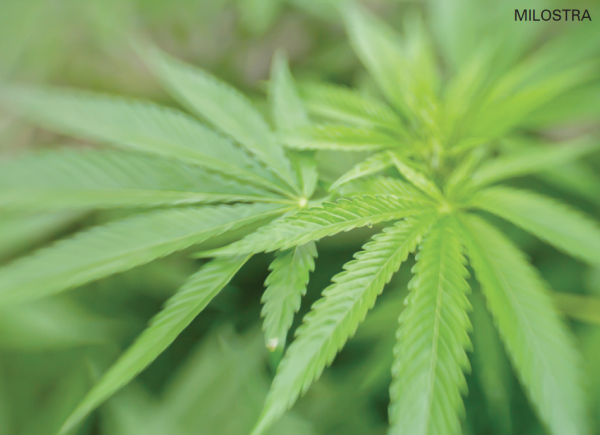by DR. ESTHER OH
Recently, a 15-year-old male patient told me about his occasional habit of smoking marijuana with his friends. “Everyone uses it at my school. It’s not a big deal,” he said, shrugging. As a psychiatrist who treats children and adolescents, I’ve noticed that my patient is among an increasing number of youth using marijuana recreationally without thinking twice about its potentially harmful effects.
Marijuana is the most common drug used by teens in the U.S.: In 2014, 11.7 percent of eighth-graders, 27.3 percent of 10th graders and 35.1 percent of high school seniors reported using marijuana (Source: Monitoring the Future
2014). And as the culture around the drug shifts, spurred in part by its legalization for recreational use in Oregon, Colorado, Washington, Alaska as well as the District of Columbia, fewer youths believe weed, like any other drug, poses dangers.
Yet, recreational marijuana use can be especially harmful for adolescents, whose brains are not as fully developed as adults’. Smoking weed has been associated with various physical and mental health problems, such as stress, anxiety, depression and psychosis, while research shows it can serve as a “gateway drug” for other illicit drugs (Source: The Impact of Cannabis Use During Adolescence. California Academy of Child and Adolescent Psychiatry, August 2012).
Here are some basic facts about marijuana and its long-term effects:
How does marijuana affect youths differently than adults?
Research shows that our brains continue to form into our mid-20s. Marijuana use during this critical period of brain development can disrupt and physically change brain structure, leading to difficulty retaining information. It can negatively impact attention and memory, slow down processing speeds and increase impulsivity particularly dangerous when behind the wheel of a vehicle or test-taking.
Can habitual marijuana use as a teen affect me as an adult?
Yes. Studies show that earlier and more frequent marijuana use while the brain is still developing can lead to higher rates of marijuana abuse and dependence as an adult—or even psychiatric disorders such as anxiety, depression and psychosis. Frequent pot smokers can also develop chronic respiratory infection and inflammation and be at greater risk for lung cancer down the road.
Can marijuana cause emotional and behavioral problems?
Marijuana can make people hallucinate or render them temporarily paranoid, so that they hear or see things that aren’t real. Frequent use has been associated with psychotic disorders such as schizophrenia and can expedite the onset of psychosis in people genetically predisposed to the condition. (Source: National Institute on Drug Abuse). A 16-year-old star athlete and student I once treated had been using weed for several months when she became paranoid people were trying to hurt her. She had panic attacks and was hyper-vigilant wherever she went. I recommended she undergo treatment at a drug rehabilitation facility. She’s since quit smoking and no longer exhibits those symptoms.
Aren’t there benefits to using marijuana for medicinal purposes?
Yes. There is some evidence that cannabis helps mitigate pain for such conditions as nausea during chemotherapy, glaucoma and chronic pain. As of present day, there have been no conclusive studies proving marijuana is a viable, long-term form of medical therapy.
What are the side effects if I abruptly kick my marijuana habit?
As with any other substance, marijuana can be addictive. Withdrawal symptoms (especially with longer and more frequent use) can include disruption of sleep, anxiety/nervousness, excessive sweating, restlessness, irritability, body aches, nausea and cravings for the drug. I’ve known patients to head to the ER thinking they had a medical condition, when they were just experiencing marijuana withdrawal.
Can the casual joint here and there really do me much harm?
It depends. Marijuana is as habit-forming as any drug and has a stronger effect on some people more than others. Despite its widespread use, there is much that is still not known about its long-term effects on our bodies and minds. Although the short-term benefits of medical marijuana are promising for specific physical conditions in adults, there can be short- and long-term psychiatric consequences of recreational use we should all keep in mind.
For more information on marijuana and its effects, visit the National Institute on Drug Abuse website marijuana.
Dr. Esther Oh, a psychiatrist at the UCLA Neuropsychiatric Institute, writes a regular mental health column for KoreAm. If you have questions, please email her ateditor@charactermedia.com. All correspondence will be strictly confidential and only accessed by Dr. Oh. Opinions expressed here represent those solely of the author.
___
This article was published in the August/September 2015 issue of KoreAm. Subscribe today! To purchase a single issue copy of the August/September issue, click the “Buy Now” button below. (U.S. customers only. Expect delivery in 5-7 business days.)







